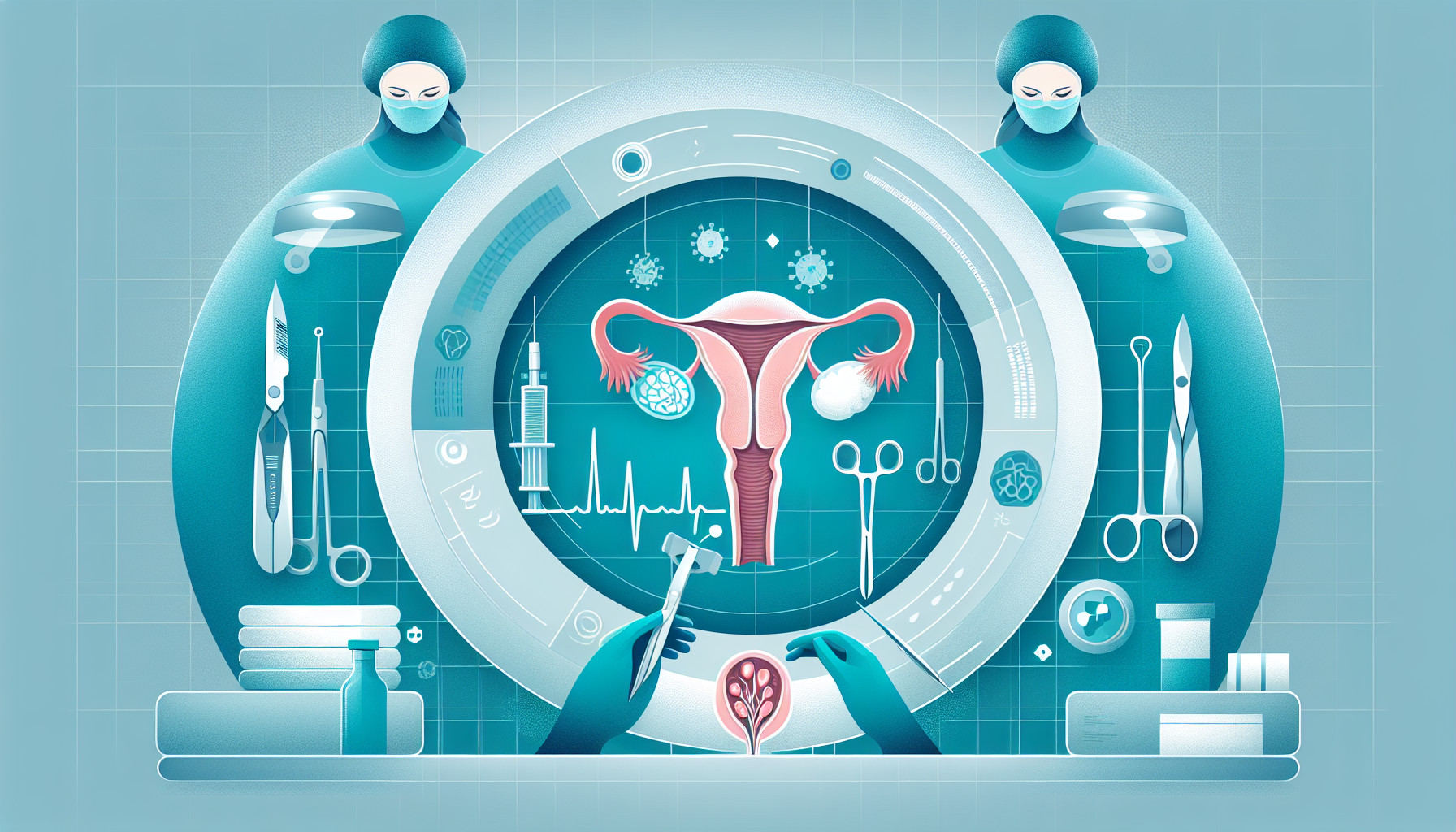Our Summary
This study aimed to understand how surgery on the ovaries affects a woman’s ability to produce eggs (known as the ovarian reserve). The researchers measured levels of a hormone called anti-Müllerian hormone (AMH) before and after surgery in 52 women with ovarian cysts who were treated at the Women’s University Hospital in Tübingen. AMH levels are used to estimate the number of eggs a woman has left. They found that AMH levels significantly decreased after surgery. Specifically, they noticed this decrease in women with certain types of cysts (follicular and endometriosis cysts) and in those with larger cysts (5 cm or more in diameter). This suggests that surgery may reduce a woman’s egg supply, at least temporarily. However, it’s not clear if this reduction is permanent or just a temporary response to surgery. The researchers caution that surgery should be carefully considered in young women who may still want to have children.
FAQs
- How does surgery on the ovaries affect a woman’s ability to produce eggs?
- What is the role of anti-Müllerian hormone (AMH) in estimating a woman’s egg supply?
- Is the reduction in a woman’s egg supply after ovarian cyst surgery permanent or temporary?
Doctor’s Tip
A doctor might tell a patient that ovarian cyst removal can potentially impact their ovarian reserve and may temporarily reduce their egg supply. It is important for patients to discuss their fertility goals with their doctor before undergoing surgery, especially if they are young and still want to have children in the future. Patients should also be aware that the effects on ovarian reserve may vary depending on the type and size of the cyst. Monitoring hormone levels and discussing fertility options post-surgery may be recommended.
Suitable For
Patients who are typically recommended for ovarian cyst removal include:
- Women with large cysts (5 cm or more in diameter) that are causing symptoms such as pain, pressure, or bloating.
- Women with cysts that are suspected to be cancerous or have a high risk of becoming cancerous.
- Women with recurrent cysts that do not resolve on their own or with medical treatment.
- Women with cysts that are causing complications such as torsion (twisting) or rupture.
- Women with cysts that are affecting their fertility or ability to conceive.
- Women with cysts that are suspected to be causing hormonal imbalances or other health issues.
It is important for patients to discuss their individual case with their healthcare provider to determine if ovarian cyst removal is the best course of action.
Timeline
Before ovarian cyst removal:
- Patient may experience symptoms such as pelvic pain, bloating, and irregular menstrual cycles
- Patient undergoes imaging tests (ultrasound, MRI) to diagnose the cyst
- Patient may undergo blood tests to check hormone levels and assess ovarian function
- Patient consults with a gynecologist or surgeon to discuss treatment options, including surgery
After ovarian cyst removal:
- Patient undergoes surgery to remove the cyst, either through laparoscopic or open surgery
- Post-surgery, patient may experience pain, discomfort, and bloating
- Patient is monitored for complications such as infection or bleeding
- Patient may need to take pain medication and rest for a few days to recover
- Follow-up appointments are scheduled to monitor recovery and assess ovarian function
- Some patients may experience a decrease in ovarian reserve, as indicated by lower levels of anti-Müllerian hormone (AMH) post-surgery, especially in cases of certain types of cysts or larger cysts
- Long-term effects on fertility and ovarian function may vary and should be discussed with a healthcare provider
What to Ask Your Doctor
- How will the removal of my ovarian cyst affect my ability to produce eggs in the future?
- Will my ovarian reserve be impacted by the surgery?
- Are there any alternative treatments to surgery that could preserve my ovarian function?
- How long will it take for my ovarian reserve to recover after the surgery?
- Will I still be able to conceive naturally after the removal of the cyst?
- Are there any risks or complications associated with the surgery that could affect my fertility?
- Should I consider fertility preservation options before undergoing the surgery?
- What steps can I take to optimize my chances of conceiving after the surgery?
- Will I need to undergo any additional testing or monitoring of my fertility after the surgery?
- Are there any lifestyle changes or medications that could help protect my ovarian reserve after the surgery?
Reference
Authors: Henes M, Engler T, Taran FA, Brucker S, Rall K, Janz B, Lawrenz B. Journal: Womens Health (Lond). 2018 Jan-Dec;14:1745506518778992. doi: 10.1177/1745506518778992. PMID: 29806554
